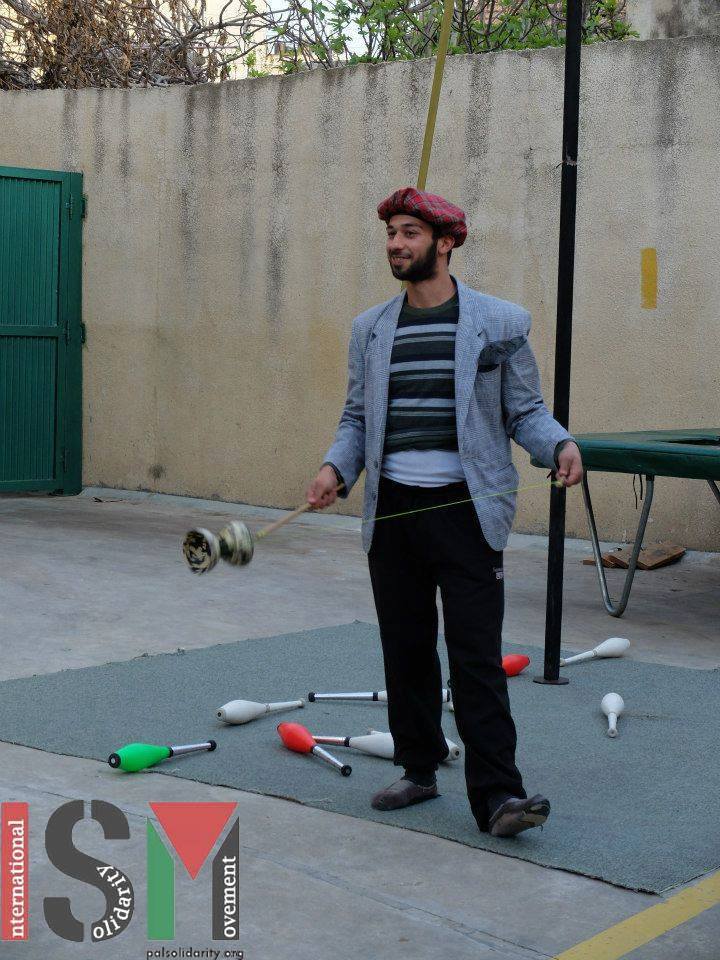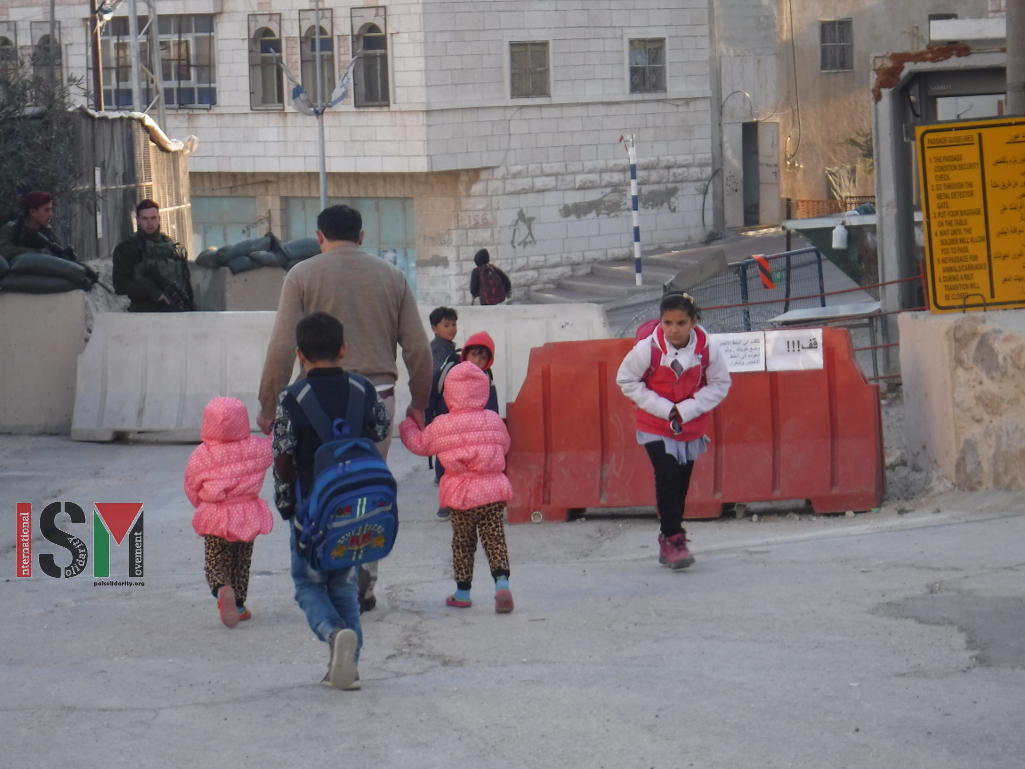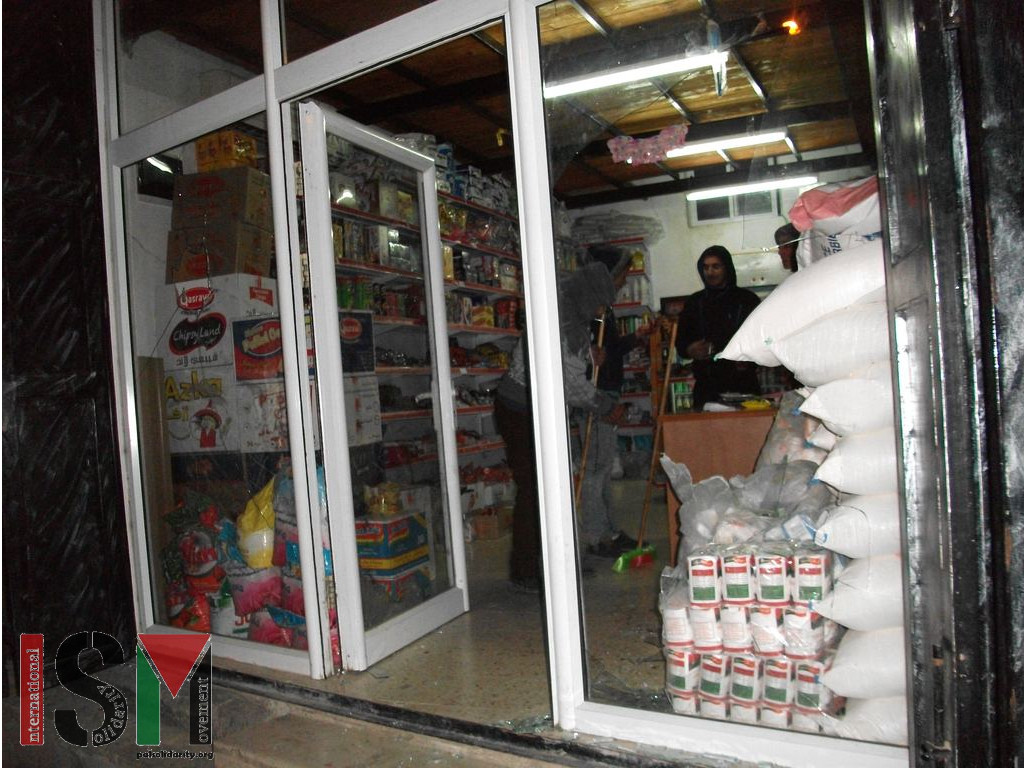Tag: Settler violence
-
Free Mohamed Abu Sakha
5th December 2016 | International Solidarity Movement | Huwwara team, occupied Palestine Members of the Circus School in Palestine, representatives of the embassies of Italy, Spain and Switzerland, Amnesty International and ISM were in the Israeli Supreme Court today to witness the hearing of the appeal for the release of the Palestinian circus trainer Mohammad…
-
Children: marvelous examples that life must go on whatever happens
29th November 2016 | International Solidarity Movement, al-Khalil team | Hebron, occupied Palestine Children: marvelous examples that life must go on whatever happens, even if their growing up is influenced by negative experiences with settlers, soldiers, torture, humiliations… We experienced this in the two days of the Jewish festival of “Chaye Sara” in occupied al-Khalil…
-
Shop owner in Hebron got both his front-windows smashed by celebrating settlers.
27th November 2016 | International Solidarity Movement, Hebron/al-Khalil team | occupied Palestine This week-end in al-Khalil brought thousands of extremist Jews and settlers from all over Israel and abroad to celebrate the week’s Torah study on Chayei Sara (Live of Sarah), where Abraham purchases the cave of Machpelah (of which they think is in al-Khalil)…



